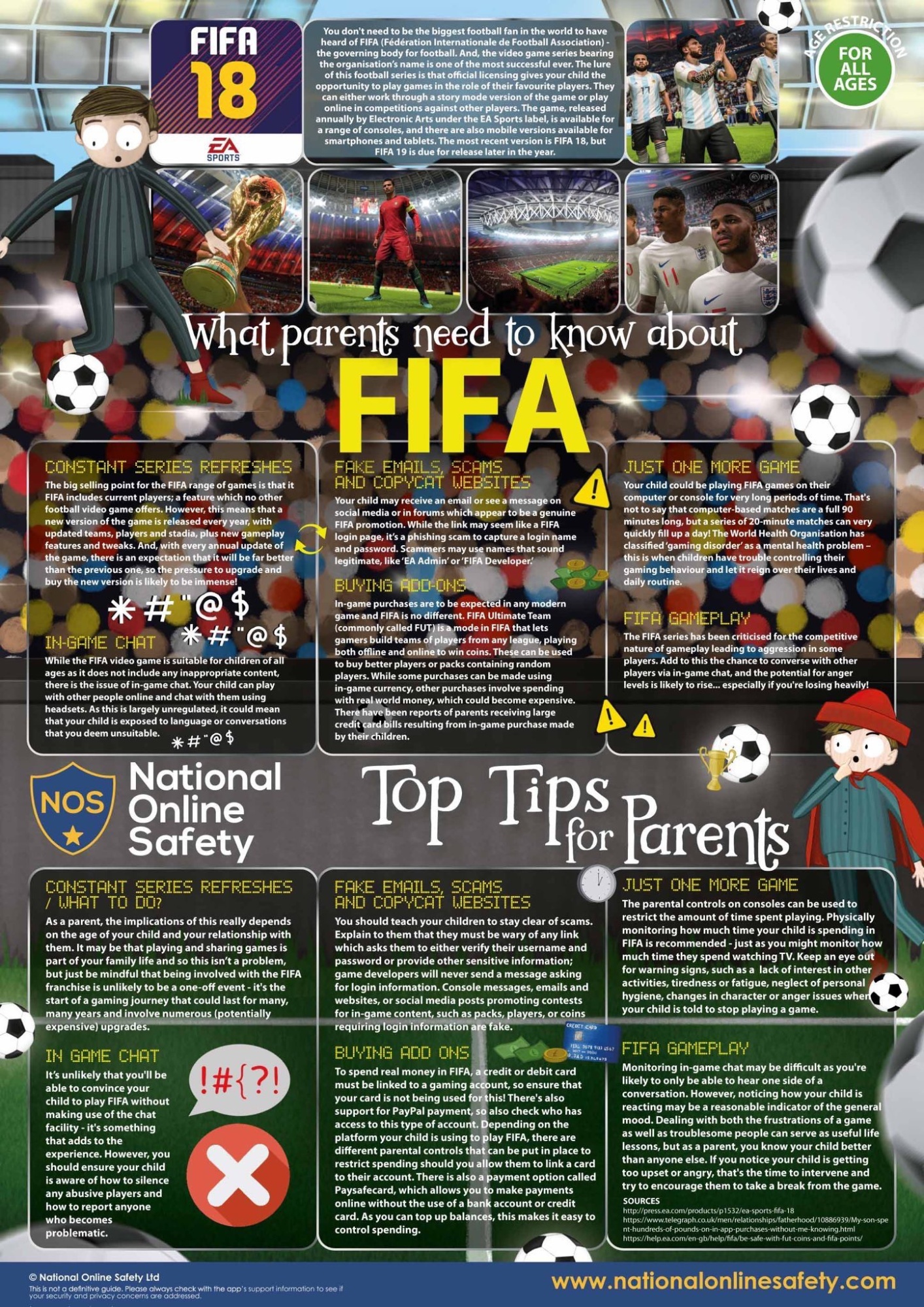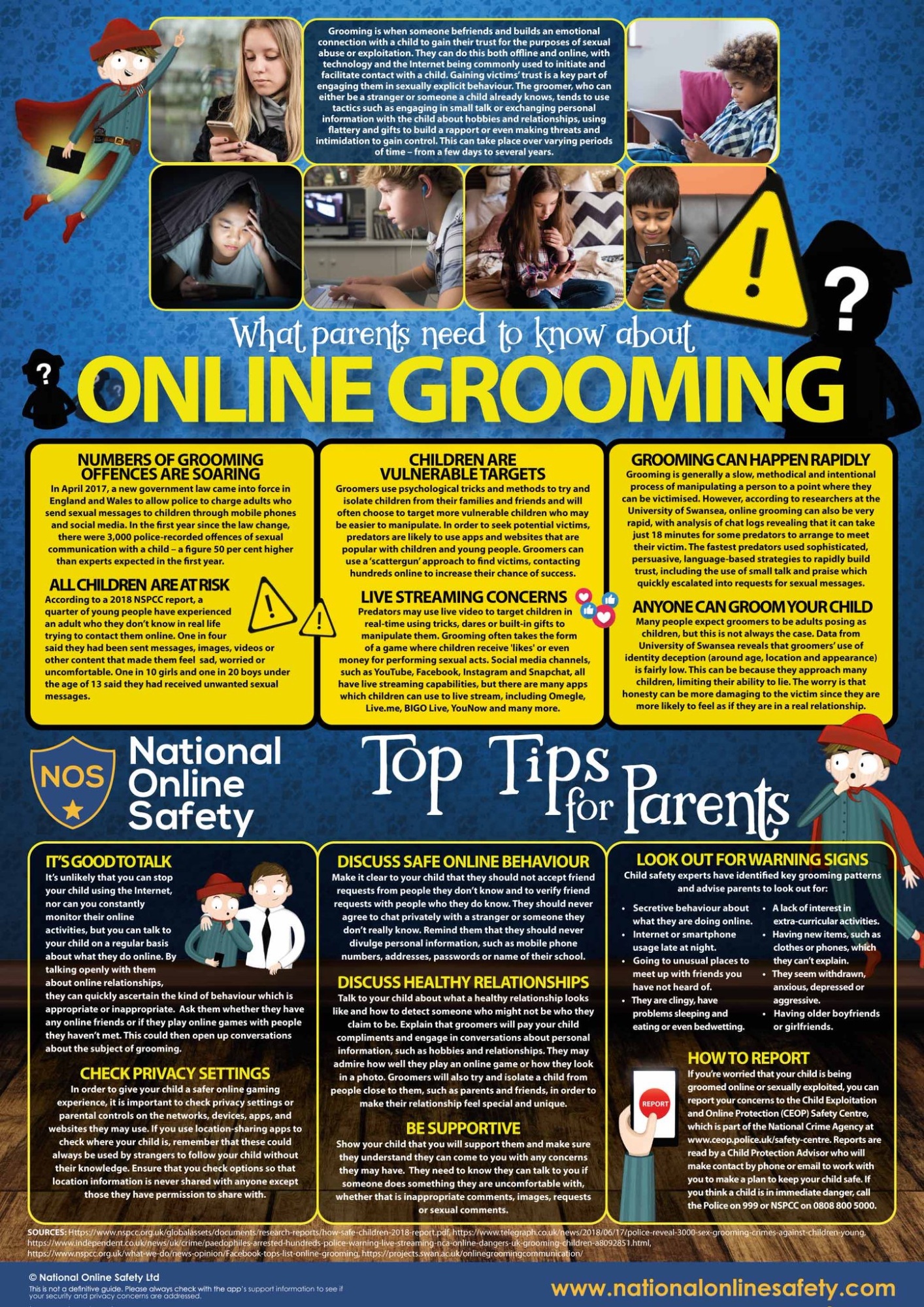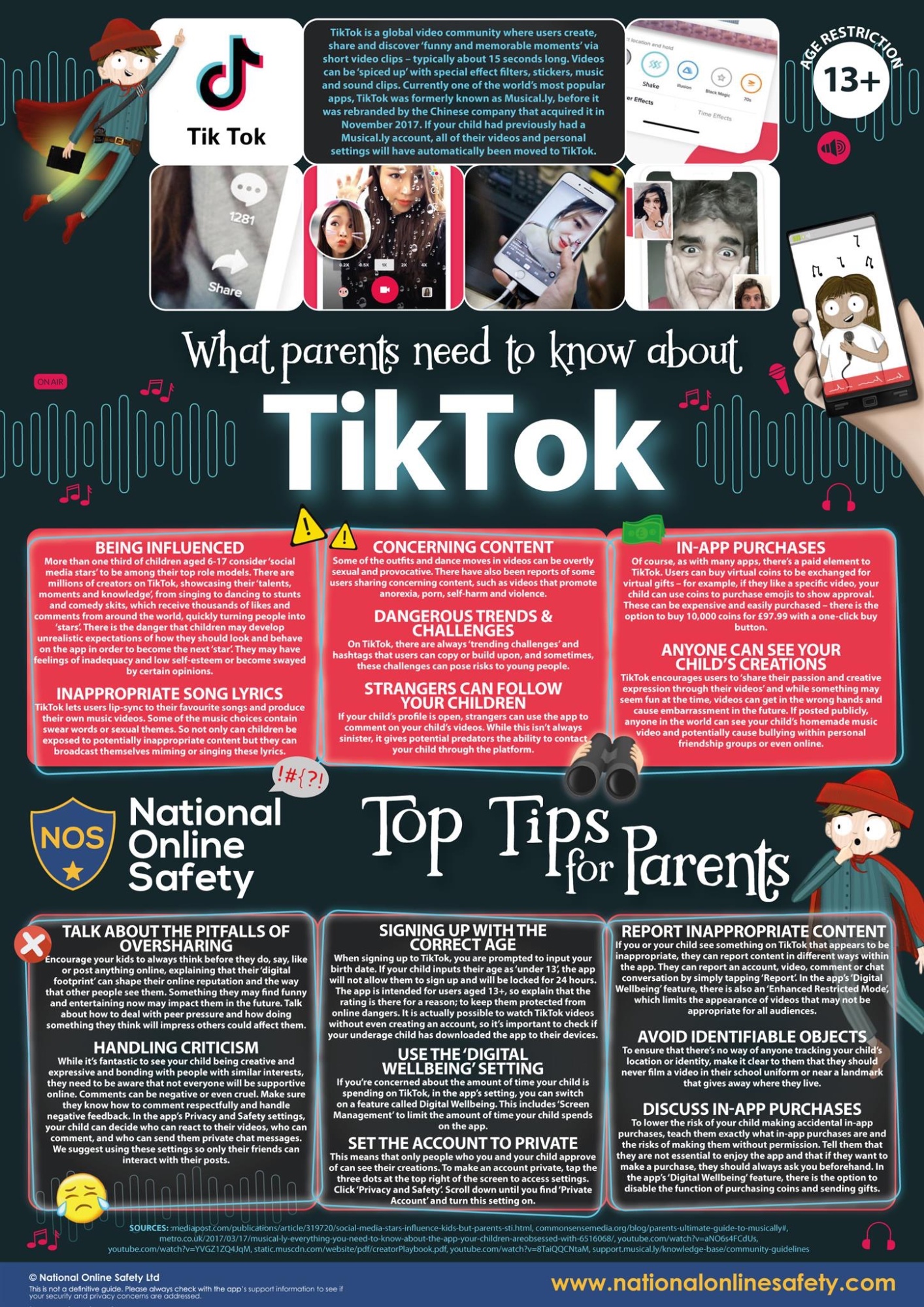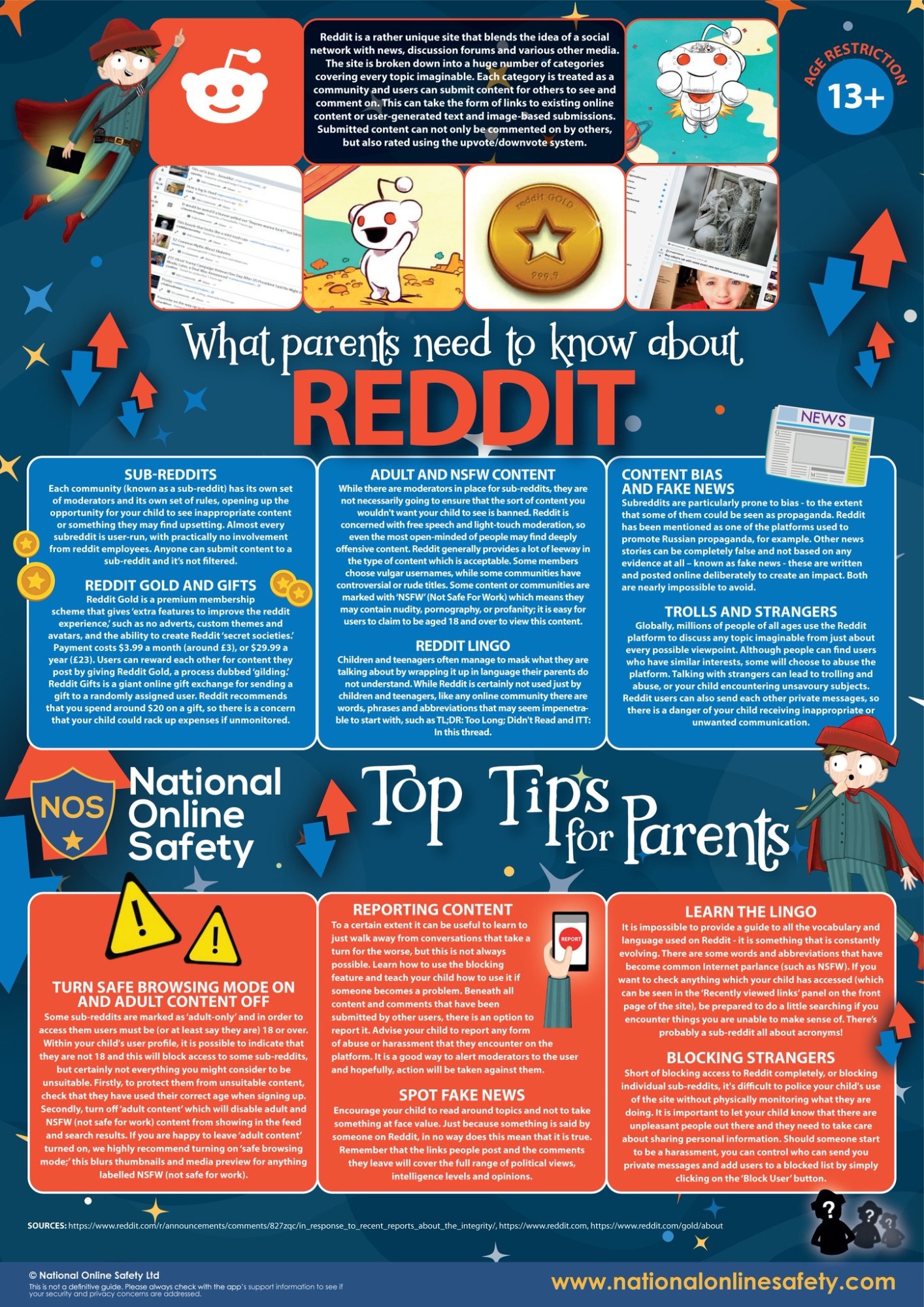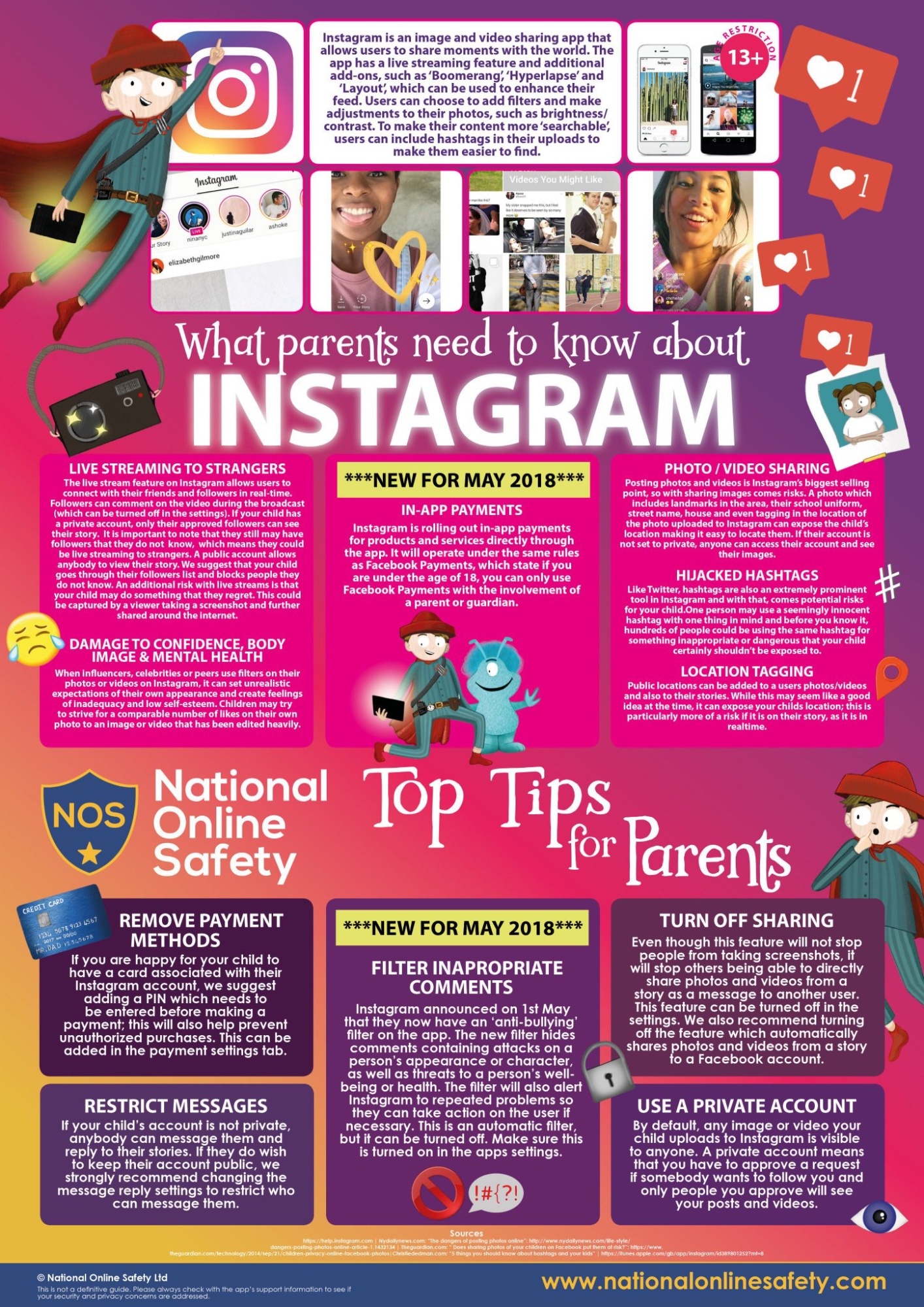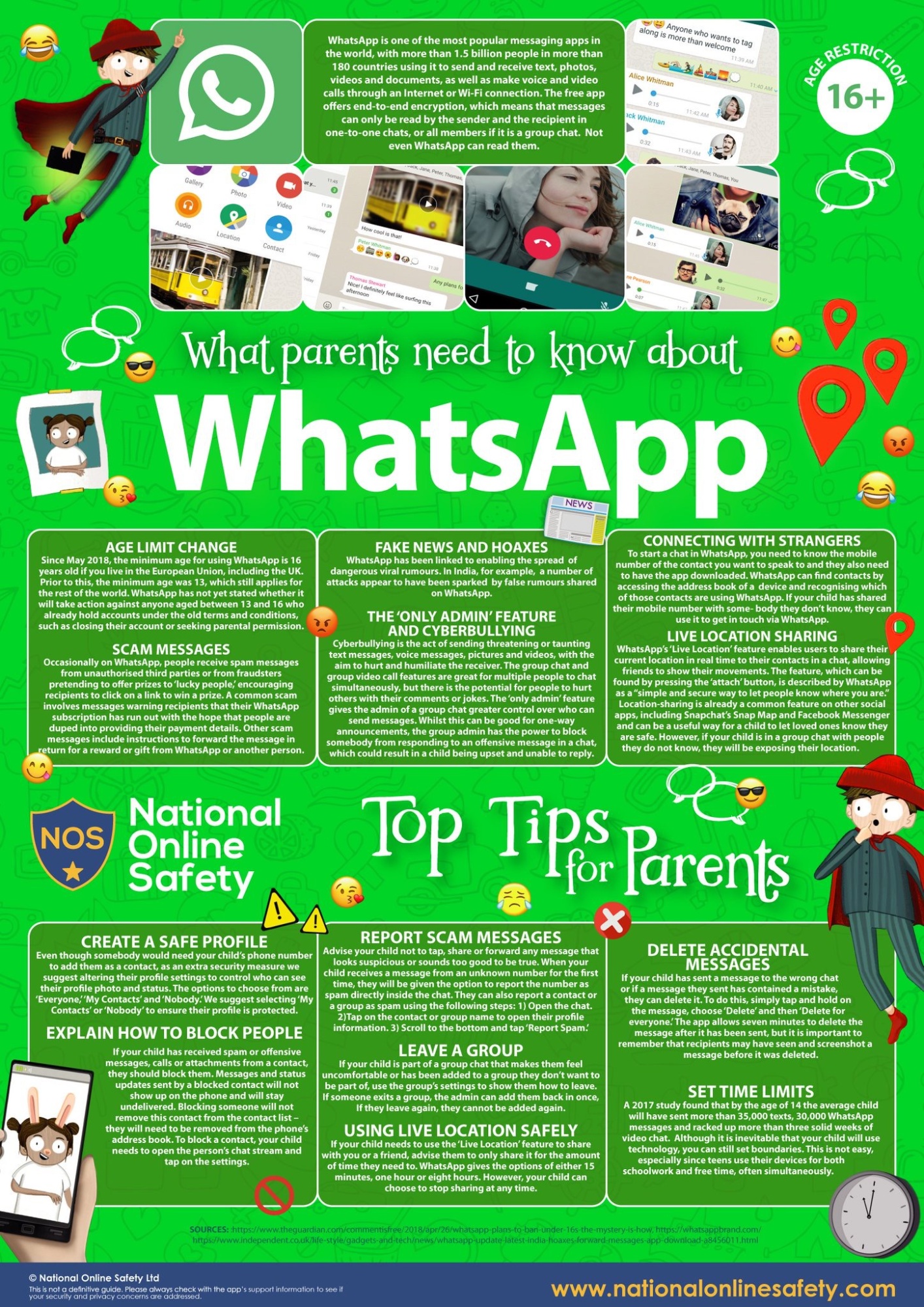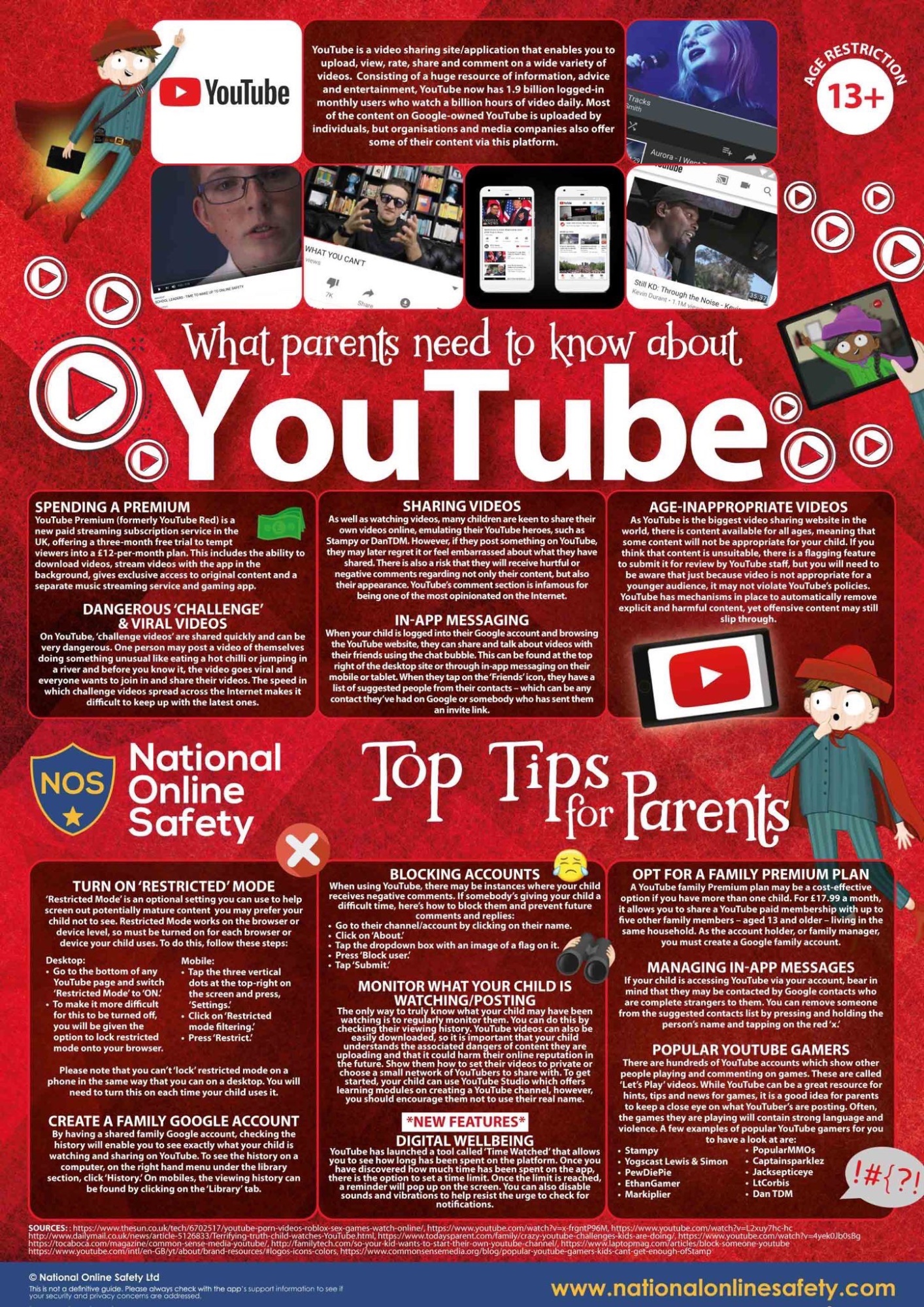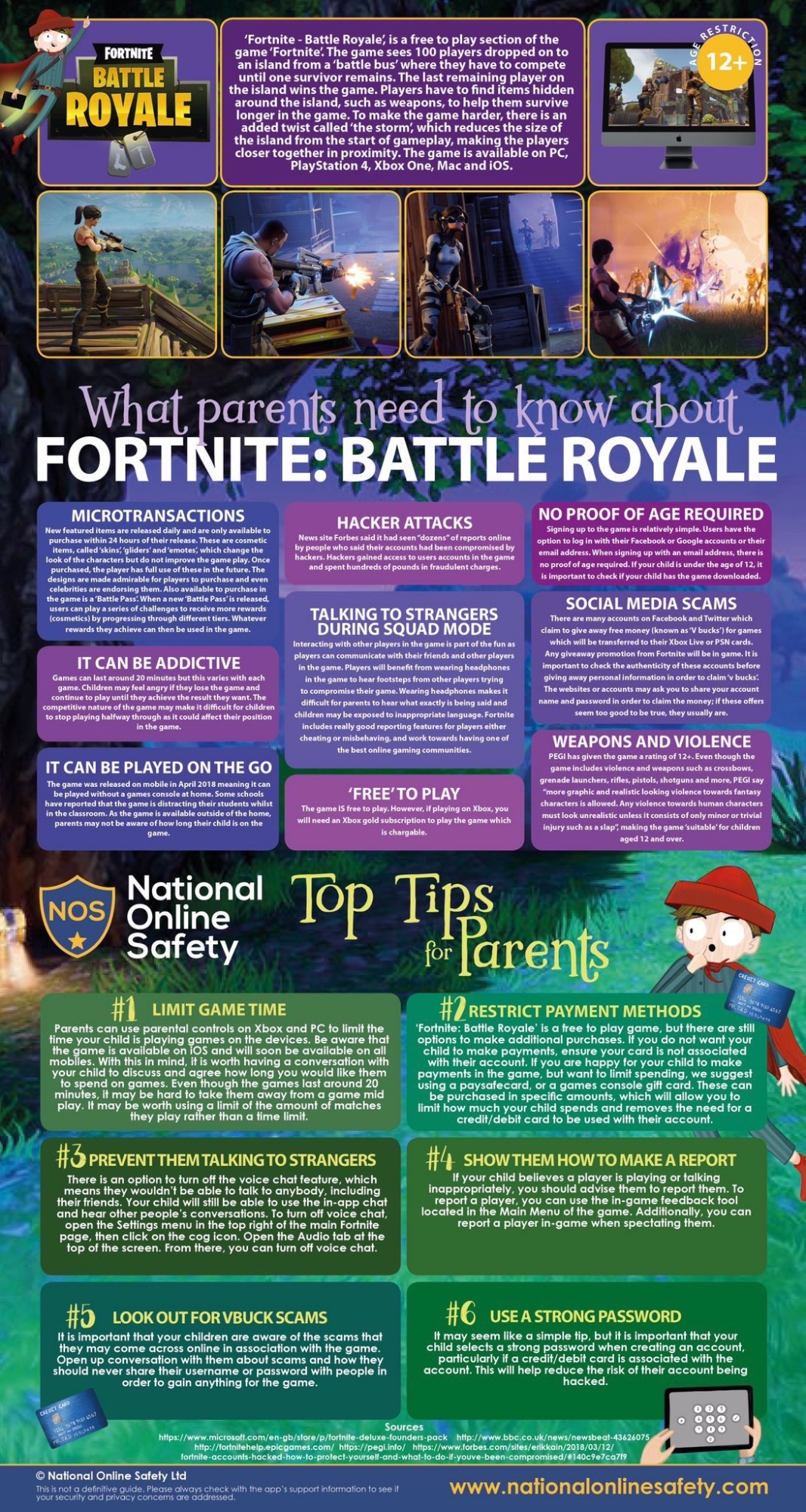E- Safety

E SAFETY GUIDES FOR PARENTS
SOME SIMPLE ADVICE FOR PARENTS
Take an active interest in your child’s online life and engage in the digital world with them.
- Let your children teach you about their online world and how they use technology; playing new games and exploring websites together can often open opportunities to discuss safe behaviour online.
- Make sure your children know that you are safe and approachable; remind them that they can tell you if something happens online that makes them feel scared, worried or uncomfortable, without being told off or punished.
You can find more advice about talking to you child about online safety from CEOP:
www.thinkuknow.co.uk/parents/articles/having-a-conversation-with-your-child/
Much like the ‘real world’, parents need to set boundaries for children online; this provides them with a clear understanding of the limits, expectations and consequences of their behaviour.
- Agree as a family, how the internet and technology will be used in your home.
- Discuss online boundaries too; if your child loves to socialise online, talk to them about what is and is not appropriate to share with their friends online.
- Remember to role-model positive behaviour online; consider asking your child’s permission before posting photos of them on social media this Christmas and empower them to have control over their ‘digital reputation’.
Take a look at the family agreement template available from Childnet International for some ideas:
www.childnet.com/parents-and-carers/have-a-conversation
It is vital that we fully understand the capabilities and make informed decisions about new games, apps and devices, before giving them to children as a gift.
- Do research; ask the shop about pre-installed apps or tools and check whether the device or game has an online component, which allows them to connect with others online.
- Always check the PEGI age rating and descriptors on games before buying them for your child and carefully consider whether the content is appropriate for them.
- Familiarise yourself with the privacy, parental controls, safety and security tools on new devices; ensure you are in a position to teach your child how to make their accounts private and how to block and report other people online.
Use the parent guides and shopper’s checklists from UK Safer Internet Centre to help you ask the right questions and make informed choices when buying new technology:
www.saferinternet.org.uk/advice-centre/parents-and-carers/parents-guide-technology
Children can accidentally or deliberately be exposed to illegal, unwanted or unpleasant content online, but there are some simple steps you can take at home to help minimise this risk.
- Make sure you install anti-virus software, filters and parental controls on your child’s device before giving it to them.
- Ensure that you are role-modelling good behaviour by using strong passwords yourself; make them difficult to guess and do not share them with your children.
- Remember that blocks and filters are not 100% effective and you cannot rely on them alone to protect your children, so remind them to tell you if they see something upsetting online.
Take a look at the interactive guide to parental controls available from Internet Matters:
www.internetmatters.org/parental-controls/interactive-guide/
Other useful websites for parents/carers:
- www.net-aware.org.uk- NSPCC guide to the most popular apps and websites available online.
- www.nspcc.org.uk/shareaware- NSPCC advice for parents to teach children about online sharing.
- www.parentport.org.uk- Report inappropriate content online.
- www.getsafeonline.org- Free up-to-date security and technical advice.
|
|
|
|
|
|
|
|
|
|
|
|
USEFUL CONTACTS
Hollingbourne Primary School Safeguard Leads are:
Helen Bradley-Wyatt- Headteacher
Zoe Wright- SENDCo
Tammie Allen (Deputy)
Local Authority Education Safeguarding Adviser (online protection):
Rebecca Avery: 03000 415797 or esafetyofficer@kent.gov.uk
THE CURRICULUM
The children at Hollingbourne are taught online safety through the requirements set out in the National Curriculum as well as our Acceptable Use Policy. In addition, we ensure that we focus online safety on Internet Safety Day.
POLICIES TO STAY SAFE ONLINE
You can find our policies here.
Our Online Safety Policy is within our Child Protection Policy. We also have a Smart Technology Policy as well as an Acceptable Use Policy.
USEFUL WEBSITES
Click on the links below to go to the webpages.
ParentPort - Is an organisation that allows you to report inappropriate content online, such as inappropriate adverts or rude content in videos.
BBCStaySafe - This is the BBC's ultimate internet survival guide designed for young people it is a great site to explore with children and start talking about online safety in a fun and engaging way.
CEOP - The child Exploitation and Online Protection Centre is a part of the National Crimes Agency. It delivers a multi agency service dedicated to tackling the abuse and sexual exploitation of children both on and offline.
ChildLine - Provide brilliant advice and support for your people on a wider variety of issues, including online safety and cyber- bullying.
Childnet - Is an organisation which provide resources and advice on how to stay safe on line.
UKsaferinternet - This is a collective organisation which provides a wide variety of advice and guidance on online safety
Thinkyouknow - ThinkUKnow is the education programme of the Child Exploitation and Online Protection Centre aimed at young people.
NSPCConlinesafety - The NSPCC have some excellent information and advice for parents and professionals working with children. NSPCC have produced a new site for parents: www.net-aware.org.uk on which they have reviewed the most popular apps and websites young people are using including age ratings and how easy it is to report a problem.
IWF - The Internet Watch Foundation is a hotline to report illegal online content.
ActionFraud - Is the UK's national fraud and cyber-crime reporting centre. If you believe your child has been a victim of fraud or identity theft you can complete a reporting form online. They also have up to date information about the latest online scams.
HomeOffice - The government have introduced a new red button for reporting online material which promotes terrorism or extremism.
InternetMatters - This is a non profit- making organisation working with online safety experts to provide advice and information for parents to keep their children safe online. It also has an excellent interactive tool which guides you step by step through setting up parental controls on all of the different devices in your home.
GetSafeOnLine - Covers a lot of practical, technical information on protecting families and computers against fraud, identity theft, viruses and many other problems encountered online.

